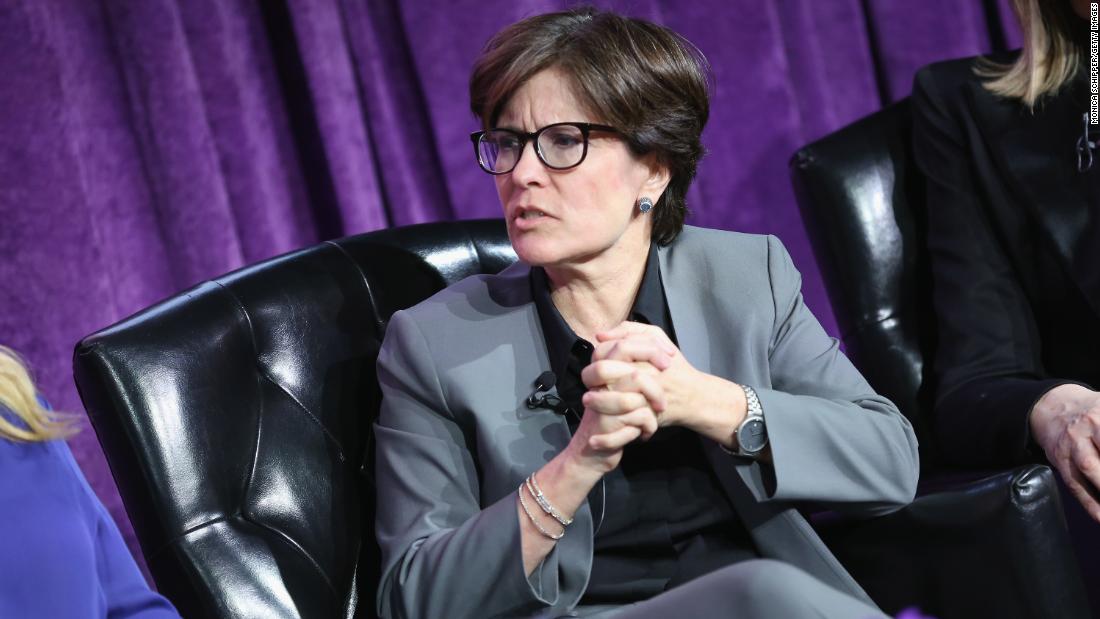
Swisher knew the biggest names in tech when they were just starting out. She met Zuckerberg when he moved to Palo Alto. She met Jeff Bezos when he was looking for office space for Amazon. She met Larry Page and Sergey Brin when they were running Google out of a garage.
"I knew them before they had billions of dollars and private planes," Swisher tells CNN's Poppy Harlow during a Boss Files interview. "So, I sort of have an idea of what makes them tick more than other people."
Swisher, the co-founder of Recode, has covered the tech industry since the 1990s. A former reporter for the Wall Street Journal, she hosts the Recode Decode podcast and contributes to the New York Times opinion section.
Her insider knowledge comes in handy when deciphering the latest moves of companies like Facebook, Google, and Twitter, which keep finding themselves embroiled in scandal after scandal.
Tech CEOs 'have a responsibility'
For years, Swisher says she has pushed big tech to take a more ethical, active approach to their businesses.
"I love technology, but at the same time, you have a responsibility to what you've done. You can't just have all the benefits, the money, the fame, the power... and not have all the responsibility that happens with your platform."
The platforms' current problems are inherent by design, Swisher says. CEOs "don't want to control" their products and haven't put a proper infrastructure in place, she explains.
"It's like a city," she says. "Mark [Zuckerberg] or Jack [Dorsey] or whoever you want to pick has built a city without street signs, without sewage, without police, without garbage men. Imagine that city. It's not a good city to live in, but they collect all the rent on everything."
The gender imbalance in Silicon Valley has only made the situation worse, she says.
"I don't think anyone who designed those things ever felt unsafe a day in their life," she says. "Women, people of color, marginalized people, feel unsafe, and feel unsafe on Twitter."
"If you allow a platform that allows anonymousness, an ability to go viral, very few rules in place, and the rules are very haphazard, this is what you're going to get," she warns.
If more women had built these companies, Swisher says, the world wouldn't be in this predicament today.
Last summer, Twitter's Dorsey told CNN that he and his team were working hard to put an end to the harassment, hate speech and misinformation that has been proliferating on the platform. Yet, the executive failed to put a timeframe on when those fixes would be put in place, noting that it would be a long-term effort.
"We've changed a lot," Dorsey told CNN last August. "But we haven't changed the underlying fundamentals."
Swisher says she saw warning signs for YouTube and Facebook Live early on. "When they showed [Facebook Live] to me for the first time, my reaction was, 'Someone's going to kill someone on this.'"
One of the latest incidents occurred in March. Facebook Live was used to broadcast a massacre in Christchurch, New Zealand. In an interview with "Good Morning America," Zuckerberg resisted calls for Facebook to delay livestreams in order to reduce the reach of disturbing content.
A call for change
Swisher wants to see tangible change in the tech industry -- starting with tougher privacy laws.
"We should begin to have smart privacy legislation that is somewhere between something less stringent than maybe GDPR, and stuff that we can live with, where consumers benefit and the companies get to thrive," she says. (GDPR, or the General Data Protection Regulation, applies to data privacy in the European Union.)
Swisher also believes tech firms should install chief ethics officers "with power, not just as PR."
In April, the UK government proposed rules to hold internet companies legally responsible for harmful content on their platforms. Tech executives there could face fines or criminal penalties for failing to protect their users.
While the US has not taken such dramatic steps, some lawmakers are pushing for stronger oversight. In March, Zuckerberg himself made headlines when he asked regulators to play a "more active role" in establishing rules for the internet. Among the issues Zuckerberg said needed better policing were privacy, election integrity, harmful content and data portability. But Swisher is critical of Zuckerberg's call. She believes the executive is pushing off responsibility.
Looking ahead, Swisher says she will continue to hold the feet of Big Tech's CEOs to the fire until they change their ways.
"I think that's my job... to say, 'stop and think,'" she tells Harlow. "I'm inevitable. I'm just there, and I don't go away."
No comments:
Post a Comment